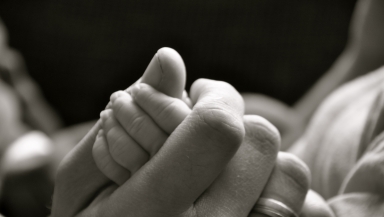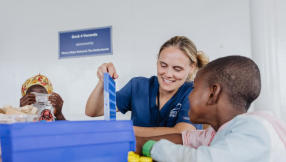
Designer children are on the way – at least if we are to believe some of the headlines in the press.
Such, perhaps, is what we might begin to envisage following the news that the United Kingdom seems set to become the first country in the world to permit "three-parent babies", as at least one headline put it.
But before we all start jumping up and down and signing petitions – or simply resigning ourselves to living in an incarnation of Huxley's Brave New World – let's try and think a little more deeply about what is happening.
For one thing, what is actually being suggested is quite specific, and quite limited. It is specific in that it has the one precise aim of eliminating debilitating and potentially fatal mitochondrial diseases that are passed from a mother to her child. And it is limited in that it would probably only benefit up to 10 (that's right – 10) couples a year.
From a scientific point of view, this is not the production of "designer babies". As Michael Rimington, Medical Director of the South East Fertility Clinic explained in The Daily Telegraph back in 2013, anyone who says so "does not fully understand the technology. There is no way that this technique can influence the eye colour, hair colour or any other external characteristic or make-up of the baby beyond what the mother and father's DNA would do on their own."
He adds: "The technique simply provides a host egg to contain the genetic material from the mother's egg... The host egg really is just that – a host – because its nucleus – the part that determines the genetic make-up of a human being – would be entirely removed before the procedure took place... What you're left with is an empty, functioning shell, which will be filled with the mother's genetic material." Any baby will have more than 20,000 genes from its parents – but just 37 mitochondrial genes from a donor.
These are complex areas, but some Christian thinkers have helpfully distinguished between, on the one hand, "replacement therapies" which aim to cure disease, and, on the other hand, "additive therapies" which would seek to put in particular qualities such as eye colour. It's the difference between a skin graft and a facelift – between corrective intervention and creative alteration.
From a Christian perspective, it seems to me that this sort of medical intervention falls firmly into the first category. It also seems hard to argue that the introduction of another person's genes to prevent disease is any more objectionable than the introduction of another person's blood via a transfusion or another person's limb, organ or skin in a transplant.
While some might feel that intervening with a person's DNA alters their very essence or being, Christian scientist and expert Denis Alexander has written: "This is simply false. DNA is always changing, albeit slowly. In practice the applications of genetic engineering are not to change the identity of species but to introduce minor genetic modifications."
Ethicist Robin Gill, in"Moral Communities: The 1992 Bishop John Prideaux Lectures", is among Christian thinkers who have suggested that human genetic modification is acceptable if directed at correcting a genetic disease.
And in 2004 another Christian, John Bryant, a molecular biology specialist, wrote: "God has given humankind a mandate to care for the earth and its resources, utilising them wherever feasible for the good of others. This stewardship extends to DNA as much as to any other resource. Therefore there are strong theological motivations for using Genetic Modification positively and wisely. At the same time, theology provides ethical resources for defining the limits of what is acceptable."













